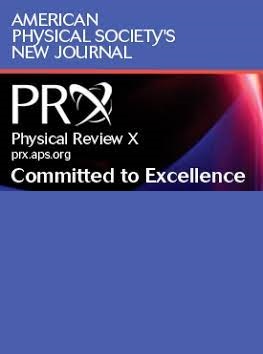人工神经网络中的Fisher信息流
IF 15.7
1区 物理与天体物理
Q1 PHYSICS, MULTIDISCIPLINARY
引用次数: 0
摘要
从测量数据中估计连续参数在物理学的许多领域中起着核心作用。理解和改进这种估计过程的一个关键工具是费雪信息的概念,它量化了关于未知参数的信息如何通过物理系统传播,并确定了精度的最终极限。随着人工神经网络逐渐成为许多测量系统不可或缺的一部分,了解其内部如何处理和传输参数相关信息是至关重要的。在这里,我们提出了一种通过人工神经网络执行参数估计任务来监控Fisher信息流的方法,从输入层跟踪到输出层。我们证明了最优估计性能对应于Fisher信息的最大传输,并且超过该点的训练会由于过拟合而导致信息丢失。这为网络训练提供了一个无模型的停止标准——消除了对单独验证数据集的需求。为了证明我们的方法的实际相关性,我们将其应用于从成像实验数据中训练的网络,突出其在现实物理环境中的有效性。本文章由计算机程序翻译,如有差异,请以英文原文为准。
Fisher Information Flow in Artificial Neural Networks
The estimation of continuous parameters from measured data plays a central role in many fields of physics. A key tool in understanding and improving such estimation processes is the concept of Fisher information, which quantifies how information about unknown parameters propagates through a physical system and determines the ultimate limits of precision. With artificial neural networks gradually becoming an integral part of many measurement systems, it is essential to understand how they process and transmit parameter-relevant information internally. Here, we present a method to monitor the flow of Fisher information through an artificial neural network performing a parameter estimation task, tracking it from the input to the output layer. We show that optimal estimation performance corresponds to the maximal transmission of Fisher information and that training beyond this point results in information loss due to overfitting. This provides a model-free stopping criterion for network training—eliminating the need for a separate validation dataset. To demonstrate the practical relevance of our approach, we apply it to a network trained on data from an imaging experiment, highlighting its effectiveness in a realistic physical setting.
求助全文
通过发布文献求助,成功后即可免费获取论文全文。
去求助
来源期刊

Physical Review X
PHYSICS, MULTIDISCIPLINARY-
CiteScore
24.60
自引率
1.60%
发文量
197
审稿时长
3 months
期刊介绍:
Physical Review X (PRX) stands as an exclusively online, fully open-access journal, emphasizing innovation, quality, and enduring impact in the scientific content it disseminates. Devoted to showcasing a curated selection of papers from pure, applied, and interdisciplinary physics, PRX aims to feature work with the potential to shape current and future research while leaving a lasting and profound impact in their respective fields. Encompassing the entire spectrum of physics subject areas, PRX places a special focus on groundbreaking interdisciplinary research with broad-reaching influence.
 求助内容:
求助内容: 应助结果提醒方式:
应助结果提醒方式:


